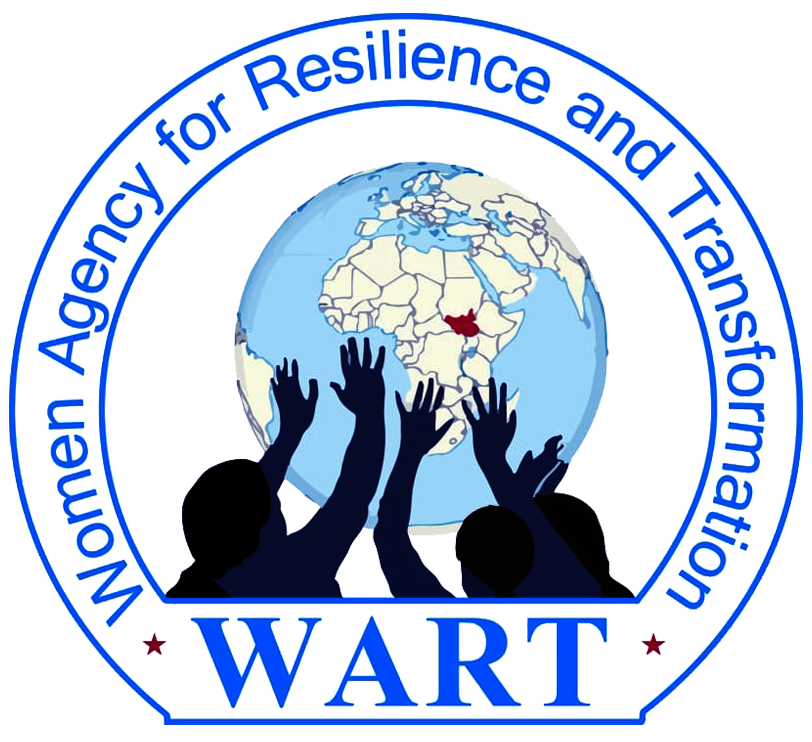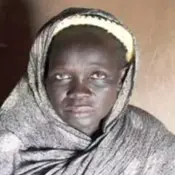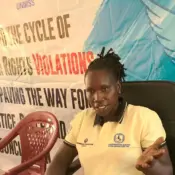Access to Justice for Vulnerable South Sudanese

Access to Justice for the Vulnerable South Sudanese
Gatkouth’s Story: A beneficiary of legal aid
25-year-old Gatkuoth Nyuon, a father of three, is the primary breadwinner for his family and resides in Rotriak, Unity State. Gatkouth burns and sells charcoal as a source of livelihood. To find suitable bushes for cutting, Gatkuoth often walks through flooded areas for days. Once he locates a dry place, he burns the wood into charcoal and brings it back to his community for sale. This process can take about 5 to 7 days.
In May 2024, Gatkouth was accused of murder and thrown into Bentiu prison without trial. Gatkuoth noted: “I was thrown into prison, accused of participating in the murder of an elderly man along with other friends who were also cutting trees for charcoal, like me. Various efforts to get me out of prison failed, leaving both me and my family distressed. I was in prison for one and a half months before I met WART paralegals.
During a prison visit, WART’s paralegals took up the case of Gatkouth. By this time, Gatkouth, was distressed and had given up the hope of reuniting with his family. WART counsellors offered Gatkuoth psychosocial counselling and the paralegals engaged the police to conduct proper investigation into the circumstances that got Gatkouth into prison. During the investigation, the Rotriak police department confirmed the whereabouts of Gatkouth during the time of the murder. This was seconded through the questioning of the other murder suspects who stated that Gakuoth had not gone to the bushes at the time when the elderly man was murdered. The statement given by the Rotriak police department and the other murder suspects confirmed that Gatkouth was innocent and was therefore released. He notes:
“WART paralegals followed up with the police in Rotriak, who confirmed that I was in their custody during the time of the offense. The other suspects were also questioned and confirmed that I had not gone to the bush during the time of the crime. This led to my release on 12th July 2024.”
In a follow-up interview, Gatkouth confirmed that he had reunited with his family and he had resumed his role as a breadwinner for his family. He calls for more information to be disseminated on legal aid services so that other members of his community can have justice.
Gatkouth’s case is not unique. According to a UNDP-commissioned study of the legal needs of the people of South Sudan, every year, two million legal problems in the country remain unsolved. Out of those legal problems, 60% relate to land disputes, domestic violence, and crime. Only 57% of them are completely or partially resolved, mainly through traditional judicial system. Twelve percent are perceived to be resolved unfairly. With weak and under-resourced justice and security systems, which have not yet recovered fully from the impact of war, people in vulnerable situations have no (or, at best, delayed) access to justice – a factor that remains a significant trigger for social tension and conflict.
WART, through the support of UNDP, continues to support access to justice by the vulnerable population groups in South Sudan. By the end of July 2024, WART had provided legal aid to 473 women, children, survivors of SGBV/CRSV, IDPs, and persons living with HIV, through three Justice and Confidence Centers (JCCs) established in Bentiu, Unity State. Thirty nine percent of the people who have benefitted from the legal aid services are female. The JCCs have also sensitized the communities on their legal rights, where and how to seek redress for different legal problems, reaching 1513 people including 1323 females. Officials from JCCs regularly visit police and prison detention facilities to help pretrial detainees process a release on bail or bond and have legal representation through which 16 wrongly convicted prisoners have been released.



